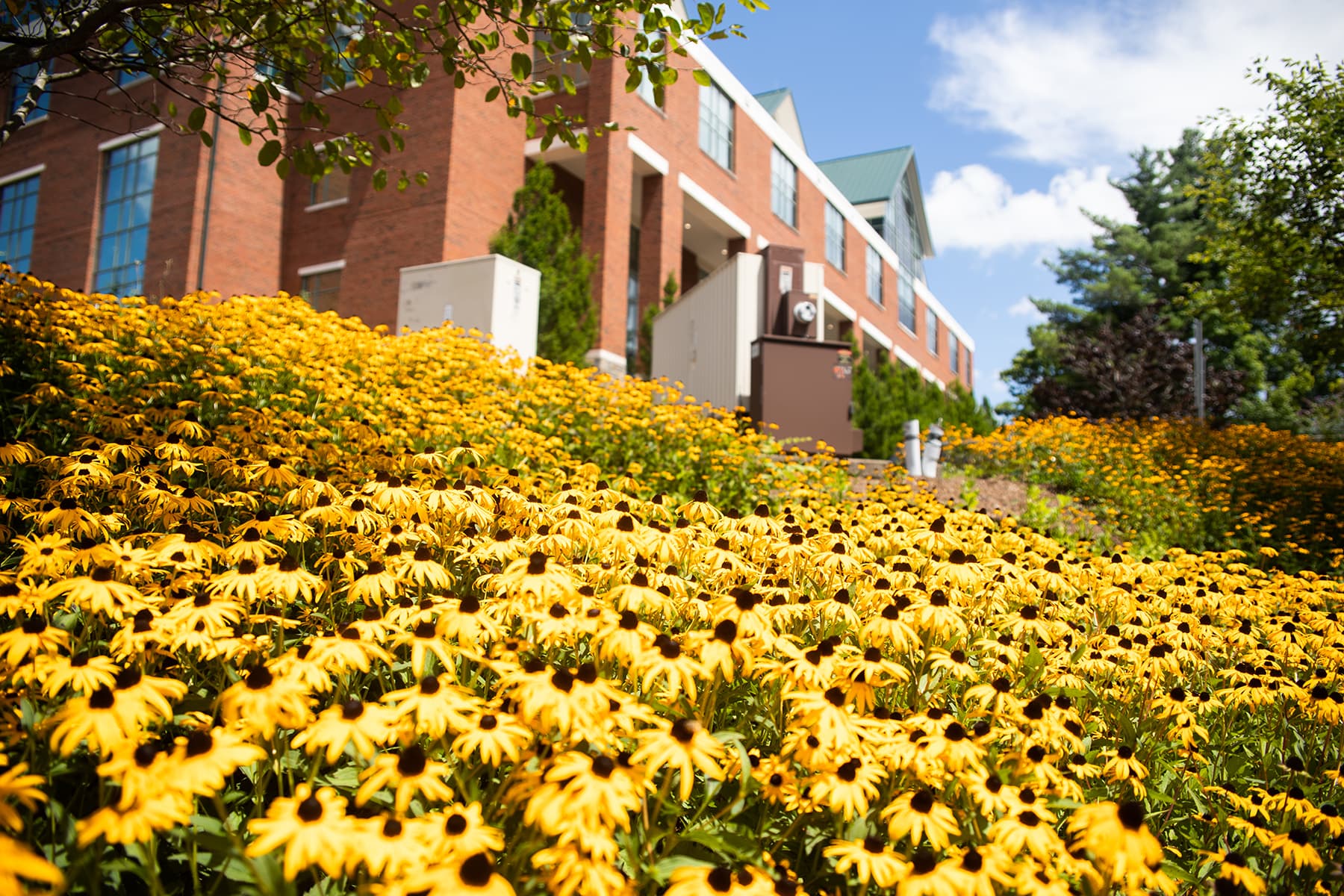Key terms involved in the growth of Appalachian State University may be unfamiliar or confusing. Below is a short glossary to help you understand campus growth and the types of funding that make it possible.
Master Plan
App State is working with architecture firm LS3P to create a new master plan that will guide the physical development of the university over the next five to 10 years — and possibly beyond. The planning process for the new plan is underway and will include broad-based input from faculty, staff, students, alumni and community members.
App State’s current plan, Master Plan 2025, was developed by Duda | Paine Architects and approved by the university’s Board of Trustees in 2017. This 192-page living document offers more than 40 recommended campus improvement projects in support of App State’s strategic plan.
Related Links:
Millennial Campus

This map, included as part of the 2023 Millennial Campus Report presented to the UNC Board of Governors in January 2024, provides an overview of App State’s millennial campus-designated properties. These properties total 582.73 acres.
According to the state’s Millennial Campus Act enacted in 2000, the UNC System Board of Governors can designate property as “millennial campus” to enhance an institution’s research, teaching and service missions, as well as the economic development of the region served by the institution.
Campus leaders have said millennial campus designation gives App State the flexibility to enter into agreements with private sector firms to develop the properties, facilitates issuing bonds to finance development, and allows the university to keep all revenues related to leasing space in the properties, which is critical to further developing the property. For example, a portion of University Hall has been leased to Wake Forest University Baptist Medical Center since 2013 for its physician assistant program.
The university’s millennial campus properties total approximately 582 acres and include 80 buildings with 3,718,196 estimated total square feet.
App State first received millennial campus designation in 2002 for the 2.3-acre tract of land where University Hall is located off Blowing Rock Road. In 2015, the Board of Governors granted millennial campus designation for approximately 77 acres that included the former Broyhill Inn property off Bodenheimer Drive and its adjacent tracks, and the 8.9-acre site of the Beaver College of Health Sciences building — Levine Hall of Health Sciences — on State Farm Road.
In fall 2016, the Board of Governors approved millennial campus designation at the 87.96-acre area incorporating Kidd Brewer Stadium and a number of west campus residence halls (see Building Physical Infrastructure page for details).
In June 2018, the board approved millennial campus designation for five more sites on a total of approximately 90 acres:
- The former Watauga High School property on Highway 105, consisting of 75 acres.
- The on-campus site of Legends nightclub, consisting of approximately 2 acres.
- The approximately half-acre Howard Street property.
- Appalachian Panhellenic Hall, consisting of approximately 5.5 acres.
- An expansion of the existing Millennial Campus site at University Hall, consisting of approximately 6.7 acres.
The university received the board’s approval of millennial campus status for 15 additional sites in 2021; these sites total approximately 316 acres, ranging in size from a quarter-acre property along East Howard Street to the 190-acre parcel State Farm Recreational Fields property located off State Farm Road in Boone.
Public-private partnerships, or “P3”
A public-private partnership, often referred to as a P3, is defined by the National Council for Public Private Partnerships (NCPPP) as a contractual relationship between the public and private sectors for the execution of a project or service for use by the general public. Each party shares resources and the potential risks and rewards associated with the project.
The U.S. has seen a surge in planned P3 projects following the global financial crisis of 2007–08, according to NCPPP.
A May 2018 article in The Chronicle of Higher Education reported more and more colleges and universities are considering P3s as a way to upgrade and replace aging facilities to remain competitive. A typical P3 agreement involves a private developer providing capital and construction services on campus property, leasing the building to the college or university for a number of years, and then reverting ownership to the institution.
The benefits of a P3 in remaking a campus, according to The Chronicle of Higher Education article:
- Speed.
- Scale.
- Efficiency.
- Lower cost.
For example, using the public-private partnership (P3) model for the residence halls project delivered additional value and savings to the university, reducing the time frame for project delivery and resulting in lower student rental rates.
- Campus Construction Projects
- State Funding Support
- Master Plan
- Glossary
- Parking and Transportation Messages

Black-eyed Susans, the official flower of Appalachian State University, near Belk Library and Information Commons. Photo by Marie Freeman

